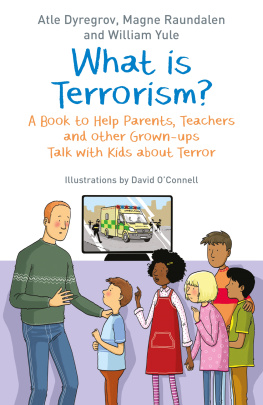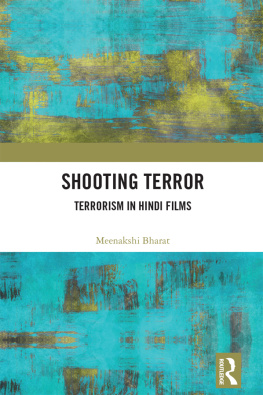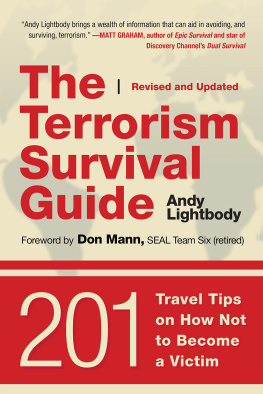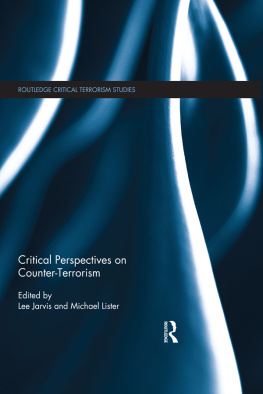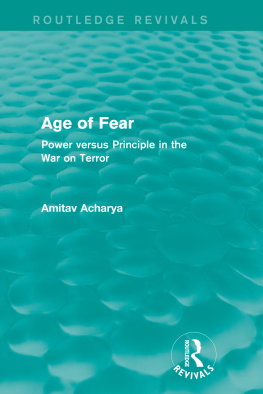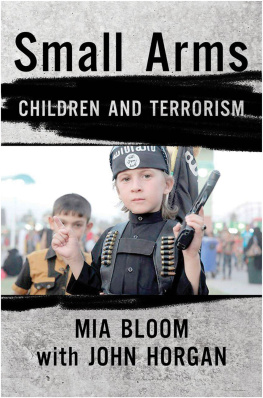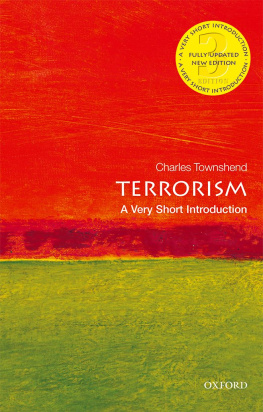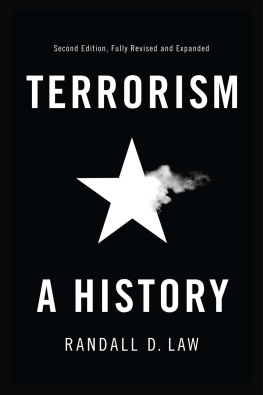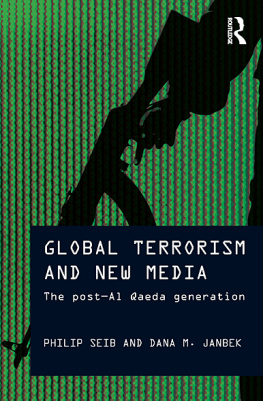Preface
WHO ARE WE?
Two of us were children during the Second World War and one of us was born a few years after that war. All three of us are psychologists whove worked for many years with children whove experienced war and terror. Weve worked with UNICEF and other organisations to improve the situation for children and families who experience such frightening events. Weve written many books and manuals that support adults in understanding how children react to war and war-like events, and how to help them cope with what theyve experienced.
Weve tried to understand how terror makes children think and feel, and to find ways of explaining terror and terrorists to children.
OUR BOOK
In this book, well try to help you understand what terrorism is, what makes terrorists do what they do, and what you can do to prevent such acts. Well also tell you a little about how we support children and families who are personally affected by terrorist acts.
The book is divided into two parts. You can read the first part with a child or children. The second part is for adults, and provides background and guidance about the ways you can approach conversations about terrorism with children aged seven and upwards. In this book we define terrorism as something that goes on separate to war, and is perpetrated by those who kill innocent people who dont have weapons. In the second part of the book (see pages 6266), we explain our reasons for defining terrorism the way we do and give tips and advice about ways to talk with your child about terrorism.
What is terror and terrorism?
Youll already be aware that sometimes you feel afraid or scared. Thats perfectly normal. Occasionally, if you feel very, very scared, you might say youre terrified. You can see where the word terrorist comes from. In a way, terrorists are similar to bullies; they want you to fear them and obey them. A bully tries to scare or terrorise you into doing something they want you to do, even though you dont want to do it. They want to force people to do what they want. So terrorists are really just big bullies. All schools have programmes to stop bullying because it can be very harmful for children.
But terrorism tends to be more complicated than bullying, because it affects whole nations. Perhaps some people who live in a country dont like the way things are run. They feel their views and needs are ignored. When they cant get their government to listen to them, they start to fight for what they consider to be their freedoms and beliefs. They threaten to do bad things. They bomb buildings. They shoot at crowds anything to force the government to give in to their demands. They see themselves as freedom fighters. But the government sees them as terrorists.
Nowadays, the word terrorist usually means someone who will use threats and killing to get their own way. They may disagree with the government over the way their group is treated; they may have a firm belief that theres only one way to do things and that any other way is wrong. If youve ever heard of Gullivers Travels , youll know that in that story two groups start fighting because one group thought that they could only open a boiled egg by smashing the shell with a spoon, while the other group thought that the only way to do it was to slice the top off with a knife! To many people, the arguments between different religious groups can seem equally silly. If only the groups didnt start killing each other.
Sometimes, countries go to war when they cant agree about things like land and resources. They train soldiers to fight, defend and kill. In these cases, we say that theyre fighting for power. Usually, this sort of aggression isnt called terrorism. As we said above, terrorism is when force is used to scare people into doing things they dont want to do. That sort of terrorism has been around for hundreds of years. Many countries gained their independence by terrorising faraway countries until they gave in. In the Middle Ages, there were wars between Christians and Muslims. The Muslim empire covered most countries around the Mediterranean, but the Crusaders fought their way to Jerusalem. Sadly, these sorts of fights still happen in the Middle East.
The difference between war and terrorism
A conversation between an 11-year-old girl, Annie, and her great-grandmother, Shelly, whos nearly 90 years old
Annie: Great-grandma, you were born in 1929, and you were ten years old when war broke out and the Second World War began. Was it terrible?
Shelly: Yes, Annie, it was terrible war and violence are the worst things that can happen to people. I was sent to a family out of London for four months when the worst bombing started.
Annie: Did you know them?
Shelly: No, I didnt, but they were very kind, and we all had to help each other, especially to protect the children from all the horror of war. But you said you had a question my dear?
Annie: Yes, I wondered about the difference between war and the terrorism that were experiencing now. Were going to talk about it in class tomorrow and I promised to talk to an old person!
Shelly: Yes, Im old enough for that! And I can tell you that many of my worst memories of the war have come back to me after seeing the TV reports of terror acts around Europe in the last few years and months. But there are big differences between war and terror.
Annie: But war is the worst?
Shelly: Yes, because it affects the whole country. The Second World War continued for almost six years and we had to fight and suffer all of us to defeat the devil Adolf Hitler from conquering the whole world. We lived in fear, but we had to fight. And we used to say that we were all in the same boat. That helped us not to give up.
Annie: Do you live in fear now?
Shelly: Not so much, now. I stay safely at home most of the time, and when Im out, Im with relatives with you, for example and I feel safe most of the time.
Annie: But you didnt like to take the subway the other day!
Shelly : Youre very observant, Annie! I didnt feel well because I thought there could be a bomb placed anywhere on the line. But Im glad we did it; next time Ill feel better. And its a long time between the attacks compared with the war.
Annie: Is terrorism a sort of war too?
Shelly: Good question, Annie! No, it isnt. War is constant, but terrorist attacks are rare and usually isolated. The similarity is that the terrorists work to create fear, and destroy our safe and good society, and therefore we have to conquer our fear, but that isnt easy. We must live like before, and trust in the protection we receive from the police and government. And we must find ways to stop young people being recruited to terrorism.
Annie: How do you think we can do that?
Shelly: The only thing I believe in is that we need to make a better life and future for everyone, especially young boys without work and education, and to find those who teach them to kill in the name of their religion. They are criminals who mislead the boys. Thats my opinion you may say that if you talk about it in class tomorrow. From a very old lady.
Annie: A very wise old lady, Id say!
Shelly: Thank you very much, my dear little wise Annie!

